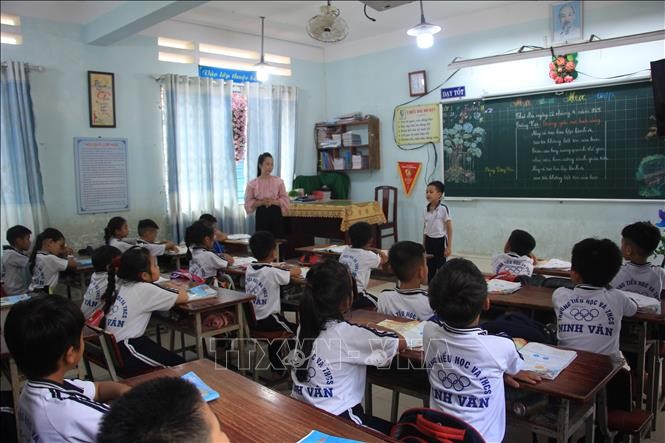
So that English is not just "a subject"
The Ministry of Education and Training is currently seeking opinions on the project "Making English the second language in schools for the period 2025 - 2035, with a vision to 2045".
According to the draft Project, English as a second language in Vietnamese schools is English taught and learned in schools where the official language is Vietnamese and the main language used is English. In which, English is a subject and English is used to teach and learn other appropriate subjects and majors; used in work and daily communication at school.
The draft project stipulates that there are 6 levels of schools implementing English as a second language in Vietnam with the general goal of English being widely and regularly used in communication, study, research, and work, to gradually become the second language in schools. In addition, improving English proficiency to meet the needs of study and work, enhancing the competitiveness of human resources in the new era, contributing to the development and advancement of the country.
The draft project also clearly states the tasks and solutions for implementation such as researching and perfecting institutions; enhancing communication, raising public awareness; developing and training, retraining, and fostering teachers and lecturers; promulgating and implementing programs, curricula, textbooks, documents, and learning materials; innovating exams, tests, and assessments; promoting the application of technology platforms, artificial intelligence, and improving facilities; promoting international cooperation, socialization, and strengthening the organization of emulation and reward activities...
Deputy Minister of Education and Training Pham Ngoc Thuong said: English is one of the 7 foreign languages taught in schools in Vietnam. This is the foreign language chosen by the majority of students, taught in the majority of schools, and is widely used in and outside of schools. With the goal of educating students to become global citizens, making English the second language in schools is an extremely important task, affecting the whole country and many generations of Vietnamese people.
According to Deputy Minister Pham Ngoc Thuong, in the past, foreign language teaching and learning often focused on grammar and vocabulary, not much on communication. Therefore, with the Project under development, the Ministry of Education and Training hopes to develop students' communication skills in both school and social spaces, creating an ecosystem for using foreign languages.
Many education experts also believe that it is time to consider English not just as "a subject" but to turn it into a life tool, a door opening to the world for all Vietnamese students.
Victoria Education System Principal Le Nguyen Trung Nguyen affirmed that English only truly becomes a second language when students live in an environment where this language is spoken, not just learned as a subject. Therefore, the important thing to do is to create a school environment where English is used regularly in classrooms, extracurricular activities and daily communication.
Ms. Victoria Clark, Global Director of Assessment Solutions in the English Language Sector of the British Council, emphasized the need to bring English out of the classroom, ensuring communication opportunities for students and that English must be a “living” language. According to Ms. Victoria Clark, assessment and testing also need to be carried out in an appropriate and interesting way, through listening - speaking - reading - writing skills.
Teachers play a key role
No school can teach English well if teachers are not equipped with new competency standards. That is the assertion of many experts and education managers when proposing solutions to improve the quality of teaching and learning English in schools.
In order to have an overall picture of the English proficiency of the teaching staff in the whole sector, Ho Chi Minh City has just conducted an English proficiency survey with more than 47,000 public teachers. Accordingly, all teachers in public schools, from primary to high school, took a 90-minute test online, including listening, reading and writing skills according to the European Reference Framework (CEFR), from A1 to C2. The survey was designed by the Cambridge University English Examinations Council, ensuring objectivity, science and high reliability. This is also the foundation for the education sector to build the Project "Gradually making English the second language in schools".
Mr. Davide Guarini Gilmartin, Senior Academic Director of the British Council, said: Teacher training can be done by short-term English training courses for both English teachers and teachers of other majors. Along with that, certificates in this language are issued at different levels according to time and training level to improve the capacity of the team.
In addition, Mr. Davide Guarini Gilmartin also noted a number of solutions such as scholarships to encourage students, evaluating the current general education program, providing key support to disadvantaged schools to ensure fairness in access to education, integrating English teaching into subjects, establishing an assessment and monitoring framework, etc.
Emphasizing the role of training and improving the qualifications of the teaching staff as a prerequisite for implementing the Project, President of Hanoi National University of Education Nguyen Duc Son shared: "In recent years, the school has organized pedagogical internships for students at international or bilingual schools, organized specialized English clubs, seminars and thematic discussions with the participation of international lecturers. At the same time, piloting sending students to study some equivalent courses abroad in the form of exchange. Annual enrollment also focuses on improving input quality and tightening output."
Dr. Nguyen Thi Minh Loan, Head of the English Department, School of Foreign Languages - Thai Nguyen University, pointed out some current difficulties in teaching English such as the lack of quantity and quality of teachers, especially teachers capable of teaching at high levels, from level 4 and above. Facilities and teaching materials still do not fully meet the needs; lack of uniformity in teaching methods and curriculum makes access to English uneven among schools and different regions.
Therefore, according to Dr. Nguyen Thi Minh Loan, to overcome the above difficulties, towards the goal of gradually making English a second language, it is necessary to invest in training a team of high-quality English teachers, especially teachers who are capable of teaching in English in other subjects. In addition, it is necessary to build a synchronous curriculum that meets the requirements of each level of education and is suitable for the actual needs of students; enhance the ability to communicate in English from the first grades, combining language learning and practical skills.
Principal of Hanoi College of Technology Pham Xuan Khanh said that it is necessary to clearly define capacity measurement and assessment criteria to ensure effective teaching and learning right from preschool and primary levels, creating a solid foundation and effective continuity at higher levels. In particular, to successfully implement the Project, it is necessary not only to have a team of good teachers but also to build a synchronous environment between family and school and effectively apply information technology.
Source: https://baolaocai.vn/tao-he-sinh-thai-su-dung-ngoai-ngu-de-tieng-anh-tro-thanh-ngon-ngu-thu-second-trong-truong-hoc-post401298.html




![[Photo] Prime Minister Pham Minh Chinh receives Ambassador of the French Republic to Vietnam Olivier Brochet](https://vphoto.vietnam.vn/thumb/1200x675/vietnam/resource/IMAGE/2025/5/13/f5441496fa4a456abf47c8c747d2fe92)
![[Photo] Many people in Hanoi welcome Buddha's relics to Quan Su Pagoda](https://vphoto.vietnam.vn/thumb/1200x675/vietnam/resource/IMAGE/2025/5/13/3e93a7303e1d4d98b6a65e64be57e870)
![[Photo] President Luong Cuong awarded the title "Heroic City" to Hai Phong city](https://vphoto.vietnam.vn/thumb/1200x675/vietnam/resource/IMAGE/2025/5/13/d1921aa358994c0f97435a490b3d5065)
![[Photo] President Luong Cuong attends the inauguration of the international container port in Hai Phong](https://vphoto.vietnam.vn/thumb/1200x675/vietnam/resource/IMAGE/2025/5/13/9544c01a03e241fdadb6f9708e1c0b65)





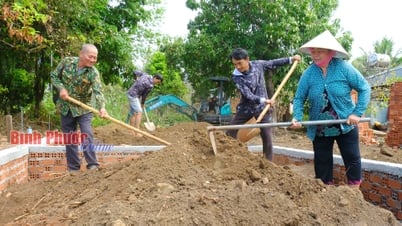




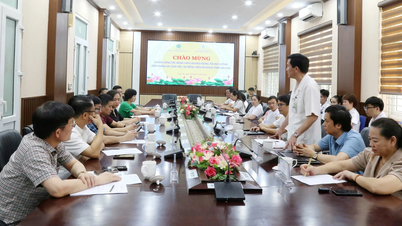
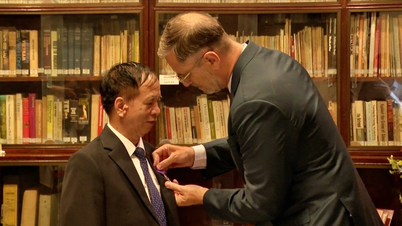

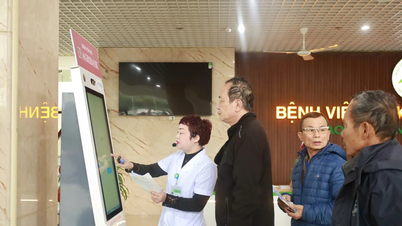



















































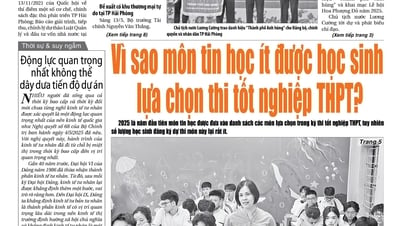















Comment (0)